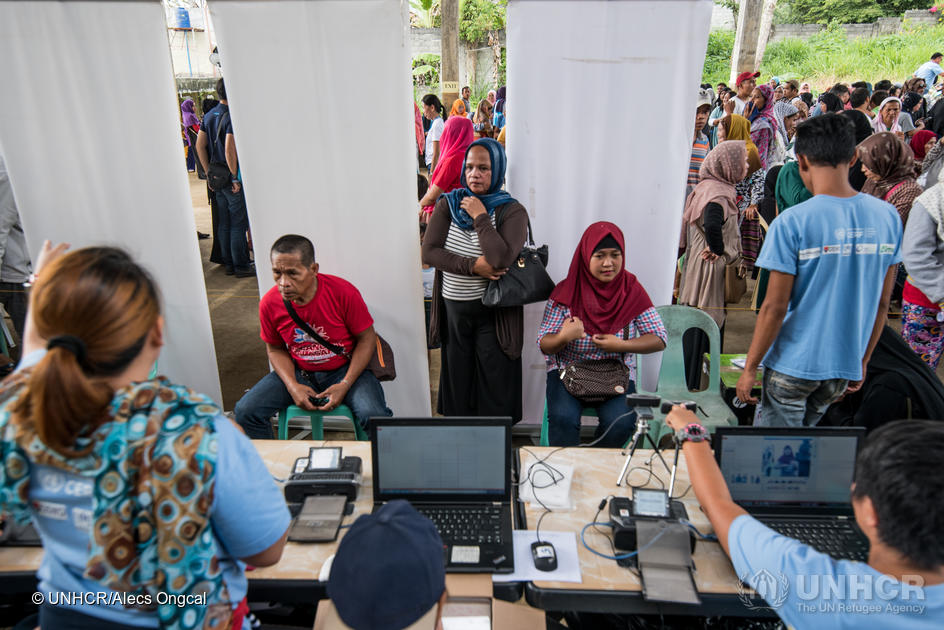A new data center aimed at increasing knowledge on the socio-economic dimensions of refugee situations and thereby improving policy and practice is on its way to Denmark.

UNHCR and a local health center in the Philippines gather data and distribute PhilHealth IDs to Marawi IDPs.
UNHCR, The UN Refugee Agency, and the World Bank have joined forces on the objective of improving global knowledge and data on refugees – thus contributing to improving policy and practice in addressing protracted refugee situations. The new Joint Data Center will be established in the UN City of Copenhagen, where UNHCR is already present with a number of global functions as well as a local liaison office.
The center will be managed jointly by UNHCR and the World Bank – and the work will therefore combine UNHCR’s experience, knowledge and data on refugees and displaced persons with the World Bank’s global experience of poverty reduction and socio-economic analytical expertise. The expectation is that improved data collection, analysis and sharing will contribute to more efficient use of resources as well as the development of long-term and more sustainable approaches.
The data center is therefore an important element in developing a more effective response and will support the objectives formulated in the Global Compact on Refugees.
There is a need to gather and analyze data on the local communities, who are hosting the majority of the world’s refugees – 85 percent of displaced people are hosted in developing countries. The socio-economic situation of these host populations are impacted both negatively and positively by the presence of refugees. There is a need to develop a deeper understanding of how host countries are affected by hosting refugees in order to support them with better designed programs.
“The scale, complexity and speed of today’s refugee crises mean we can no longer afford to respond through humanitarian action alone. It is more important than ever to mobilize resources and plan for the longer term from the beginning. This is why early access to reliable data for development partners like the World Bank is so important,” said United Nations High Commissioner for Refugees Filippo Grandi when UNHCR and the World Bank announced the collaboration in October 2017.
With improved data and analytics on refugees, the data center will strengthen the ability to take evidence-based decisions. Governments, development partners, humanitarian agencies, NGOs, academia, the private sector and civil society will be able themselves to draw upon the material thereby improving the quality of field interventions and impacting positively the living conditions of the people affected by forced displacement.
The key objectives of the data center are:
The data will be anonymized micro data based on demographic and socioeconomic conditions such as income, consumption, skills, health status, and economic activity. There is a great demand for such micro data as knowledge of the welfare and poverty conditions of refugee households is not widely known. Data collection and analysis will focus on refugees, asylum seekers, stateless persons, internally displaced, returned refugees, and host communities.
It is expected that the data center will start its activities in the first quarter of 2019 in UN City in Nordhavn, Copenhagen thanks to generous support from the Danish government.
Share on Facebook Share on Twitter